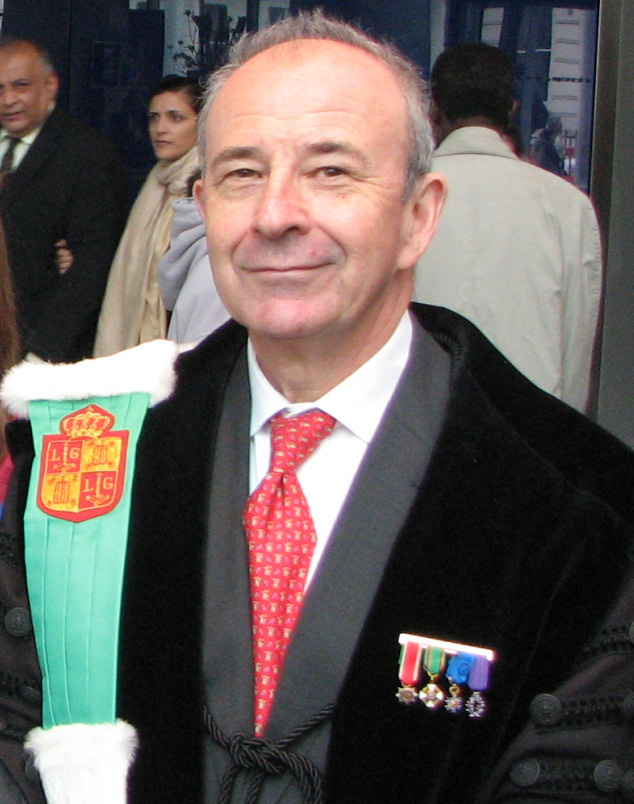Keynotes & plenary talks
Advancing the next generation of photonic systems using machine learning
Short Biography
Darko Zibar is currently Professor at the Department of Electrical and Photonics Engineering, Technical University of Denmark and the group leader of Machine Learning in Photonics Systems (MLiPS) group. He received M.Sc. degree in telecommunication and the Ph.D. degree in optical communications from the Technical University of Denmark, in 2004 and 2007, respectively. He has been a Visiting Professor at Politecnico di Torino, Friedreich Alexander University of Erlangen, University of California Santa Barbara and University of Colorado, Boulder. His research efforts are currently focused on the application of digital signal processing and machine learning techniques to advance classical and quantum optical communication and measurement systems. Some of his major scientific contributions include: record capacity hybrid optical-wireless link (2011), record sensitive optical phase noise measurement technique that approaches the quantum limit (2021) and record-bandwidth (S+C+L band) programmable gain Raman amplifier (2019). He is the recipient of Young Researcher Award by University of Erlangen-Nurnberg (2016), European Research Council (ERC) Consolidator Grant (2017), Alexander von Humboldt Foundation Bessel Research Award, (2021), and Villum Investigator Award (2023). Finally, he was a part of the team that won the HORIZON 2020 prize for breaking the optical transmission barriers (2016).
Abstract
The 2024 Nobel Prize in Physics underscores the growing influence of machine learning in diverse areas of physical science. In the field of photonics, machine learning is proving invaluable for tasks such as optimizing and designing fiber-optical communication systems, optical amplifiers, noise characterization of frequency combs, inverse design of photonic components, and quantum-noise-limited signal detection. In this talk, I will review notable applications of machine learning in photonics and explore future directions in this emerging field. Specifically, I will highlight its role in phase noise characterization of optical frequency combs, end-to-end learning for fiber-optic communication, and realization of programmable ultra-wideband Raman amplifiers. Lastly, I will introduce an exciting new application of machine learning: controlling nonlinear interactions in highly nonlinear waveguides.
A Revolutionary Theranostics Approach for Robotized Colonoscopy
Short Biography
Bruno Siciliano is professor of robotics and control at the University of Naples Federico II. He is also Honorary Professor at the University of Óbuda where he holds the Kálmán Chair. His research interests include manipulation and control, human–robot cooperation, and service robotics. Fellow of the scientific societies IEEE, ASME, IFAC, AAIA, AIIA, he received numerous international prizes and awards, including the recent 2024 IEEE Robotics and Automation Pioneer Award. He was President of the IEEE Robotics and Automation Society from 2008 to 2009. He has delivered more than 150 keynotes and has published more than 300 papers and 7 books. His book “Robotics” is among the most adopted academic texts worldwide, while his edited volume “Springer Handbook of Robotics” received the highest recognition for scientific publishing: the 2008 PROSE Award for Excellence in Physical Sciences & Mathematics. His team has received more than 25 million Euro funding in the last 15 years from competitive European research projects, including two ERC grants.
Abstract
This talk will present the underlying concepts of EndoTheranostics, a novel ERC Synergy Grant project aiming at revolutionizing the diagnosis and therapy (theranostics) of colorectal cancer (CRC), impacting the quality of life of millions of individuals. CRC represents a significant proportion of malignant diseases. Interventions are often carried out during the latter stages of development, leading to low patient survival rates and poor quality of life. In 2022 a European Commission report stated that “colonoscopy-based screening has higher sensitivity than testing for blood in stool, but it is less acceptable to participants”. At the same time, effective methods to treat polyps in the colon are limited. Current approaches are often associated with unsafe oncological margins and high complication rates, requiring life-changing surgery. EndoTheranostics will usher in a new era for screening colonoscopy, advancing the frontiers of medical imaging and robotics. A tip-growing or eversion robot with a sleeve-like structure will be created to extend deep into hollow spaces while perceiving the environment through multimodal imaging and sensing. It will also act as a conduit to transfer miniaturized instruments to the remote site within the colon for theranostics. With these capabilities, the system will be able to offer: (i) painless colon cleansing in preparation for endoscopy, (ii) real-time polyp detection and tissue characterization through AI-assisted multimodal imaging, (iii) effective removal of polyps by conveying a “miniature mobile operating chamber” equipped with microsurgical tools to the target through the lumen of the eversion robot.
Evaluating Trustworthy Recommender Systems for Social Good
Short Biography
Francesco is senior professor in Computer Science of Free University of Bozen-Bolzano (UNIBZ), Italy. He is member of the UNIBZ Competence Center on Sustainability and member of the Steering Committee of the Digital Humanism Initiative, TUW, Vienna. His current research interests are multidisciplinary and focus on the usage of Artificial Intelligence techniques, such as Recommender Systems, in supporting human collaboration with AI, for improving users' decision making processes and wellbeing. He is interested in building systems that can help groups and individuals to make more rational and fair decisions in complex and context dependent scenarios, such as, what information to consume and how, or what places to visit together in a group. He is the author of more than 250, highly cited, refereed publications. He coedited the Recommender Systems Handbook, a reference publication, and served as president of the steering committee of the ACM conference on RSs.
Abstract
Recommender systems (RSs) are personalised AI tools used online platforms to promote algorithmically identified news, posts, music, and videos. Their core component is a machine learning algorithm exploiting very sparse users' online behaviour data to estimate what items, in a predefined catalogue, should be presented, to each user in a personalised way, to achieve a desired platform goal (e.g., increase revenues and user satisfaction). After having briefly discussed RSs value, and the risks that user faces in interacting with RSs, I will focus on the role and importance of a proper evaluation of these artifacts, which is also a mandatory request formulated in the European legislation (Digital Service Act). Classical machine learning evaluation approaches, which are based on offline testing the learned predictive models on holdout past data, are insufficient to asses the effect of new algorithms (interventions). A new type of simulation-based evaluation approach will be therefore introduced: it enables to estimate the potential effects (positive and negative) of an RS on the choices made by their users when they are influenced by the received recommendations. The application of this evaluation approach will be exemplified in a particular case: sustainable recommendations in tourism, namely, how to tame over tourism and respect local communities.
AI for the Detection and Mitigation of Cyberattacks

Short Biography
Erol Gelenbe’s research contributes to our understanding of System and Network Performance, Machine Learning, and Cybersecurity. He received his BSEE from METU (Ankara), the MS and PhD from New York University, and the State Doctorate in Mathematical Sciences from Sorbonne University. A Professor at the Institute of Theoretical and Applied Informatics, Polish Academy of Sciences, he has graduated over 90 PhDs and was awarded the honours of Chevalier de la Légion d’Honneur, Commander of Merit of France and Italy, Commander of the Order of the Crown of Belgium, and Officer of the Order of Merit of Poland. He developed diffusion approximations, and his inventions include the Random Neural Network, the eponymous G-Networks, fast many-to-many communication architectures and online machine learning based network routing algorithms. A Fellow of the National Academy of Technologies of France, of the Science Academies of Belgium, Poland and Turkey, Hon. Fellow of the Hungarian Academy of Sciences (Budapest) and the Islamic Academy of Sciences (Amman), he currently chairs the Informatics Section of Academia Europaea. His prizes include the ACM SIGMETRICS Lifetime Award, the Mustafa Award, the Grand Prix France-Télécom of the French Science Academy, the IET Innovation Award (Oliver Lodge Medal), and the Imperial College Rector’s Research Award.
Abstract
Gateway Servers for the Internet of Things that include critical application areas such as the Internet of Vehicles and health monitoring, must meet stringent Security and Quality of Service (QoS) requirements, offering cyberattack protection with fast response and minimal loss of benign data. Therefore, it is vital to protect these systems with adequate Attack Detection (AD) and Mitigation mechanisms. We will first demonstrate novel online and federated learning techniques that accurately detect attacks, and describe measurements of cyberattacks that also impair the QoS at the Gateways and impede their capability to carry out AD. Novel traffic shaping methods to ensure that Gateways may allow AD to operate promptly during an attack will be discussed. A new Adaptive Attack Mitigation (AAM) system will be introduced to sample the incoming packet stream, detect attack and dynamically drop batches of packets at the input to reduce the effects of the attack, while minimizing the AD overhead and cost of lost benign packets.
Towards Explainable Defect Image Classification in Semiconductor Front-End Production
Corinna Kofler
Kompetenzzentrum Automobil- und Industrieelektronik GmbH, Villach, Austria
Short Biography
Corinna Kofler is a computer vision expert in the Data Science group at KAI in Villach, a cutting-edge research center 100% owned by Infineon Austria. Infineon Technologies is a global leader in the semiconductor market, renowned for its innovative solutions in the areas of energy efficiency, mobility, and security. Corinna has been with Infineon since 2005 and has specialized in data science since 2016. Her expertise lies in applying computer vision, machine learning, and deep learning techniques to improve quality inspections in semiconductor manufacturing, contributing to the advancement of high-tech production processes.
Abstract
Deep learning has revolutionized image classification through convolutional neural networks (CNNs). In the first part of this talk, Corinna will explore the application of CNNs in semiconductor front-end production, focusing on defect image classification. The session will begin with a short explainer video, followed by insights into how CNN models are currently used in production to improve quality and efficiency. While CNNs achieve high accuracy, their lack of interpretability limits trust and adoption in critical manufacturing processes. To address this, KAI and Infineon partnered with the University of Sarajevo on a PhD project funded by the Important Project of Common European Interest (IPCEI), focusing on Explainable AI (XAI). In the second part of the talk, Vahidin Hasic, a PhD student will present how XAI improves the transparency and reliability of CNN predictions, empowering defect density experts to better understand and validate AI outputs. This fosters trust, drives wider AI deployment, and enhances efficiency across Infineon’s manufacturing sites.



